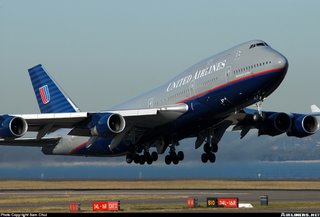Airlines must also face reality

Including airlines in the scheme "is necessary because aviation emissions are increasing rapidly and threaten to undermine our progress in cutting emissions from other sectors," Dimas told a press briefing on 9 November 2006.
We are going to treat airlines irrespective of nationality in the same way, coming or going from EU airports," he added.
Depending on how long the co-decision procedure and implementation in national legislation takes, the proposal should take off during the second phase of the ETS (2008-2012) "We expect something like 2010," Dimas said.
The European airline industry is less hostile to emissions-trading than to other measures to reduce CO2 emissions such as taxes or levies. British Airways was the most outspoken supporter of emissions trading, saying that it is "the most economically and environmentally effective way to reduce carbon dioxide emissions levels".
The first phase of the ETS covered around half of Europe's CO2 emissions, mainly from the power sector and heavy industries. The next challenge will be to cut emissions from cars, ships and planes, which are the next-largest source of greenhouse-gas emissions.
On 13 November, the Commission will also launch a review of the EU-ETS as a whole "with the aim of looking at how its operation can be improved and whether its scope should be extended further". Harmonisation of allocation methods, which currently differ between member states, will also be considered in the review, Dimas indicated.
"I intend to bring legislation next year to amend the scheme. In order not to disturb the carbon market, these changes will not take effect until 2013, Dimas said.

0 Comments:
Post a Comment
<< Home